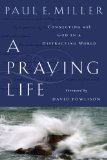Krish Kandiah asked on facebook recently, “what good women teachers do you know?”
My answers were:
- Amy Orr-Ewing, who has a sharp mind, is an excellent communicator, loves God and knows her Bible well – all the ingredients for a great preacher.
- I also added Karen Jobes. I have no idea how good she is as a speaker, but both the commentaries (on Esther and 1 Peter) I have read by her have been first class.
- Had I thought of it at the time, I would have included Heidi Baker in that list too, a remarkable woman of faith and courage.
Normally this is a subject I steer well clear of on my blog, since even the mention of the word “complementarian” is guaranteed to generate plenty of comments (unlike the cyber-tumbleweed that greeted my recent 22 part series on Ps 119!). But since I’m planning to study (and possibly blog) my way through the pastorals in the very near future, the challenge of explaining 1 Tim 2:12 will soon be upon me, so I need to start thinking again about this whole debate.
In this post I don’t intend to present any arguments for a complementarian position, but I do want to dispel three myths about what we think concerning women teachers, and consider one of the key challenges faced by complementarian churches. So first, let me briefly make my three points:
1. Being complementarian does not mean you believe women are not capable of being good teachers. I have a friend who thinks that Joyce Meyer is reason enough to accept women preachers. Given my theological differences with her, its fair to say I don’t find that a particularly compelling argument. But my answers to Krish’s question above, and answers provided by several other of my complementarian friends reveal that we are not in denial about the existence of women who are very good at teaching the Bible. And I personally do not have a problem with benefiting from their ministry.
2. Being complementarian does not mean you believe it to be a sin to learn something from a woman. This one keeps on cropping up as a kind of reductio ad absurdum rebuttal of the complementarian position. But there is no logical step from having male only preaching, or male only eldership to the belief that it is wrong to learn from a woman. Whatever it was Paul intended to prohibit, it is abundantly clear that he expected all believers, women included, to participate in the “edification” of the body through the exercise of (spoken) spiritual gifts.
3. There are plenty of good women teachers in complementarian churches. Egalitarians often perpetuate the idea that there are no good women teachers in complementarian circles. I beg to differ. Several of the names given as answers to Krish’s question should suffice as examples. Whilst it may be true that there are not as many as there might be, or that those that exist may not enjoy the prominence they might get elsewhere, it is not fair to deny their existence altogether. Many author books, speak at conferences (and not just at women’s conferences), and use their gift in a wide variety of contexts. Two women who have managed to establish international ministries within a very conservative evangelical context are Joni Tada and Elizabeth Elliot. Within my own group of churches, several women gave excellent seminars at last year’s leadership and youth summer conferences.
So it may be that a woman with a remarkable teaching gift can indeed make use of it in a complementarian context, but I want to move on consider a different question, and that is whether we are doing enough to encourage women to develop such a gift in the first place. Last time I raised this question it generated plenty of discussion in the comments. Let me phrase the question like this:
Do complementarian churches hinder women from reaching their full potential in teaching?
This is criticism from egalitarians deserves careful consideration. In one sense, we would have to honestly admit the answer is yes. Suppose someone desperately wanted to be a pilot, yet had a medical condition that meant they would never be awarded a pilot’s licence. You would probably discourage such a person from spending time and money studying to be a pilot. As much as they might enjoy the training, it would ultimately be an exercise in futility. Likewise some might assume that if a church does not allow women to preach on a Sunday there would be no point in training them to be able to teach.
But it would be a big mistake to think like that about training young women in complementarian churches. In fact, I would say that the basic training given to men who seem to have a potential gift for teaching is completely appropriate also for women, irrespective of whether they will get asked to preach on Sundays or not. Let me illustrate by outlining four ways in which I think potential Bible teachers should be developed in their gifting:
1. Encourage going deep in the Scriptures. If anyone wants to be a teacher of God’s Word, they must first be a student of it. I want to see as many people as possible, male and female, going really deep with God’s Word, studying it in detail, learning the principles of hermeneutics, and allowing it to shape their thinking.
2. Encourage teaching in small group settings. I am not a fan of the “let anyone have a go” approach to preaching in some churches. It is much more appropriate for people to develop their gifting by teaching in small group settings. When you ask someone to teach in a small group it becomes immediately apparent how much effort they have put in to studying the passage they are teaching, and how effective they are at helping the group understand and apply it.
Teaching small groups is also important for developing and detecting humility. Someone who wants to preach merely because they wish to show off their skill, or because they want impose their own opinions on others is not ready to be a preacher. Those God has graced to teach should be those who do not despise ministering to just a few people, or “just” the children, or “just” the women. Instead they should be characterised by a sense of love for those they serve through teaching and count it a privilege to do so.
3. Encourage the spiritual gift of the “word of instruction”. As a card-carrying charismatic, I love the fact that the Holy Spirit is an “equal opportunity empowerer”. If anything, I have always felt that it is Joel 2:28-29, and not Gal 3:28 (whose context seems to me to be to do with salvation not church order) that should be the egalitarian trump card.
The “word of instruction” is 1 Cor 14:6 is only mentioned in passing by Paul, but seems to describe someone bringing a brief contribution that is in effect a teaching or an exhortation. Those desiring to teach should be people who always have something on their heart they are burning to share with others, however briefly. Blogging might be one way of sharing it, but much better to do so in a church gathering (whether in small group or large). And there is no reason to think from 1 Cor 14 that Paul restricts this gift to men only.
4. Create contexts for them to grow in their gifts. Often there can be an unhelpful “all or nothing” approach to using a gift of preaching. I think it is important, particularly in a large church, to be creative about finding contexts where people can develop a teaching gift that is less daunting (and risky) than addressing everyone on a Sunday morning. I have often invited friends round to my house to preach to me and my wife in our living room (highly recommended, it’s great fun to do). I also organized some Saturday morning theology training sessions at my church and asked some friends who I felt had potential to grow in a teaching gift to help me out by taking some of the sessions (and they all did brilliantly). It is often in these smaller contexts that a person’s level of gifting becomes apparent. Not all of us are called and gifted to preach before audiences of thousands.
So in summary, though a complementarian church may, out of a genuine desire to be faithful to Scripture, not use women to preach to the gathered congregation, it does not follow that they should not train women in the skills necessary to teach. In fact, I am convinced that our churches will benefit tremendously if we actively seek to include them in such training. Doubtless there will still be tension concerning those who feel they can only be fulfilled in their gifting through addressing the whole church, but better a church full of people bubbling over to share what they have discovered in the Scriptures with others, than one where only a few have a passion to teach.
Anyway, I’m sure I’ve said more than enough to get my head blown off. Fire away in the comments.


